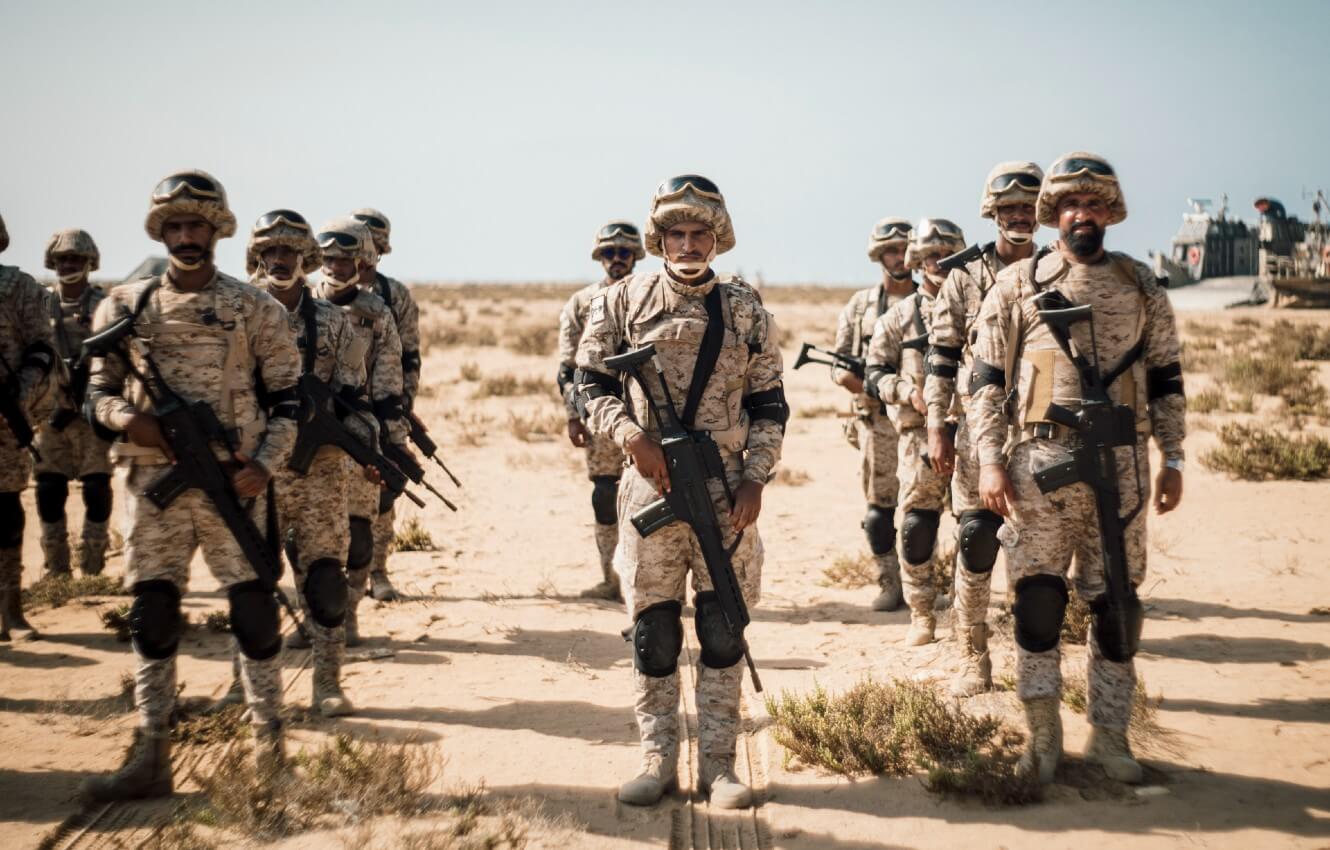At 1 a.m. local time on Jan. 21, 2022, Yemen went dark. Minutes before, a Saudi-led coalition airstrike destroyed key communications infrastructure in Hudaydah, causing an nationwide internet shutdown. Simultaneously, the coalition launched an airstrike 160 miles away in Saada that resulted in over 350 casualties.
Both airstrikes were in response to a recent Houthi-led air-raid on transport infrastructure within the United Arab Emirates. The Houthi drone and missile attack against the United Arab Emirates — which represented a clear escalation in the regional conflict — coincided with increased Emirati support for a Yemeni militia named the Giant’s Brigade. The recent tactical actions of the Giant’s Brigade significantly altered battlefield calculations in both Marib and Shabwa. The city of Marib is critical to control of north Yemen and the nearby oil-rich province of Shabwa is a key “gateway to Marib.” The Houthis thus launched their strike against the United Arab Emirates for its newly increased battlefield role. An already complex and violent conflict had taken a new turn for the worse.
Some commentators have called for a punitive U.S. response against the Houthis for the attacks against the United Arab Emirates, including re-designating the group as a foreign terrorist organization. They argue that the Houthis need to know that Saudi allies will not permit further Houthi military escalation and that the only language the Houthis understand is decisive punishment.
While the Houthis’ attack against the United Arab Emirates was destabilizing, re-designating the group as a foreign terrorist organization would be a mistake. The military situation on the ground actually affords an opportunity for diplomacy. Re-designating the Houthis as a foreign terrorist organization would likely result in reduced international aid flows and further devastate the civilian population, without any certainty that it would moderate Houthi behavior. Instead,…







